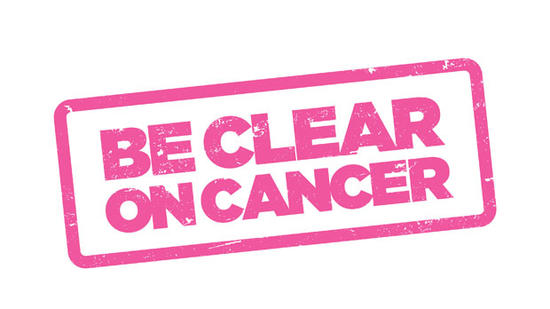'Breast cancer in women over 70' campaign: Impact on services

Campaign Materials
Breast Cancer briefing sheets and marketing materials (e.g. leaflets and posters) are available on the resources and tools page.
The information on this page aims to help those responsible for services that may be affected by the national ‘breast cancer in women over 70’ campaign. Where available, data and insights are provided from the first national campaign and previous pilot campaigns.
GPs have a pivotal role as the gatekeepers to investigation and referral, but the task is a difficult one as the number of new diagnoses encountered each year is typically very small. An average of 65 cases of breast cancer in women aged 70 and over are diagnosed in each Clinical Commissioning Group (CCG) per year [1]. This equates to around five cases of breast cancer in women aged 70 and over in each CCG per month.
It is likely that GPs will see an increase in the number of patients coming to their practices with breast cancer symptoms or mentioning them during home visits. It may take a few weeks for you to notice the impact of the campaign and any additional patients or their carers requesting appointments.
Analysis from 265 GP practices shows that, on average, the first national ‘breast cancer in women over 70’ campaign saw a significant 42% increase in women aged 70 and over attending the GP with a breast symptom during the campaign period (when comparing with control time periods from 2011-2014) [2]. This is equivalent to an increase from 0.1 attendances to 0.2 attendances per practice per week.
Results from the first national campaign also show a significant 67% increase in 2 Week Wait (2WW) referrals for both non-suspected breast cancer symptoms and suspected breast cancer during the campaign period, compared to the same period in 2012.
View evaluation findings from the national ‘breast cancer in women over 70’ campaign
References
- Total number of breast cancer cases in England 2011-2013 in women aged 70 and over (13,700) divided by the number of CCGs (211) in England
- Data provided by Mayden (Healthcare IT Specialists)
Plan for an increase in GP visits during the campaign period. Distribute the 'campaign overview' briefing to colleagues and encourage them to re-visit the NAEDI website regularly over the coming months for further briefings and information.
During the campaign, GPs are advised to follow their locally agreed referral pathways for suspected breast cancers and breast cancer symptoms, and to use their clinical judgement when making referral decisions.
The NHS and local authorities are being encouraged to work together to plan for and support this campaign. Your CCG may have a GP cancer lead who can give you further information relating to your area.
Information is available to support you with this early diagnosis activity:
Download a ‘campaign overview’ briefing
Take part in the BMJ learning module 'Suspected breast cancer: when you should refer' (link is external), developed in association with NICE
Review guidelines published by the Department of Health:
‘ Guidelines for diagnosis of patients presenting with breast symptoms’ (link is external)
It is difficult to predict the exact impact this campaign will have, but based on the experience from the local, regional and first national campaigns you should plan to see more women referred for both breast cancer and breast symptoms. It is important that colleagues responsible for performing procedures and patient admissions are aware of the campaign and plan the necessary resources to meet any increased demand ahead of time.
Following the national campaign in 2014, on average each trust saw approximately six extra referrals per week for suspected breast cancer and five extra referrals per week for breast symptoms. The peak of the referrals was approximately one to two months after the campaign activity started. The impact on services will vary by trust and be influenced by the size and age profile of your local population. You may find it useful to look at the number of requests for appointments, diagnostic tests, urgent referrals and treatment following the breast cancer campaign that ran from February-March 2014. Use this information to help you plan for the summer 2015 campaign.
NHS Improving Quality, as part of NHS England, will work with Strategic Clinical Networks and other NHS stakeholders to help ensure the NHS is prepared for an increase in women being referred for tests and treatment. By providing advanced notice and sharing learning from the first national campaign, regional and local pilots, it is hoped local teams can have conversations within their NHS trust and with CCGs to plan for an uplift in demand for services.
Download NHS communication (campaign announcement)
View available results from ‘breast cancer in women over 70’ campaigns
Initial analysis of the first national campaign, which ran in early 2014, has been undertaken to assess the number of women in the target age range self-referring into the breast cancer screening programme during the campaign period. Early results currently show that during the campaign weeks (Feb-March 2014), a total of 21,607 women aged 70 and over self-referred for breast screening. This compared to 9,175 women in the equivalent six week period in 2011. This represents a net increase of 12,432 self-referrals. Further detailed work will need to be undertaken to explore this finding in more detail.
Public Health England and its partners pay for all national advertising, and campaign materials are provided to local teams free of charge.
Be Clear on Cancer statement
Be Clear on Cancer was a cancer awareness campaign led by Public Health England, working in partnership with the Department of Health and NHS England. This page contains links to documents that we hope you find useful. Please note however that the views or opinions expressed within those links are not necessarily those of Cancer Research UK.
